01:55
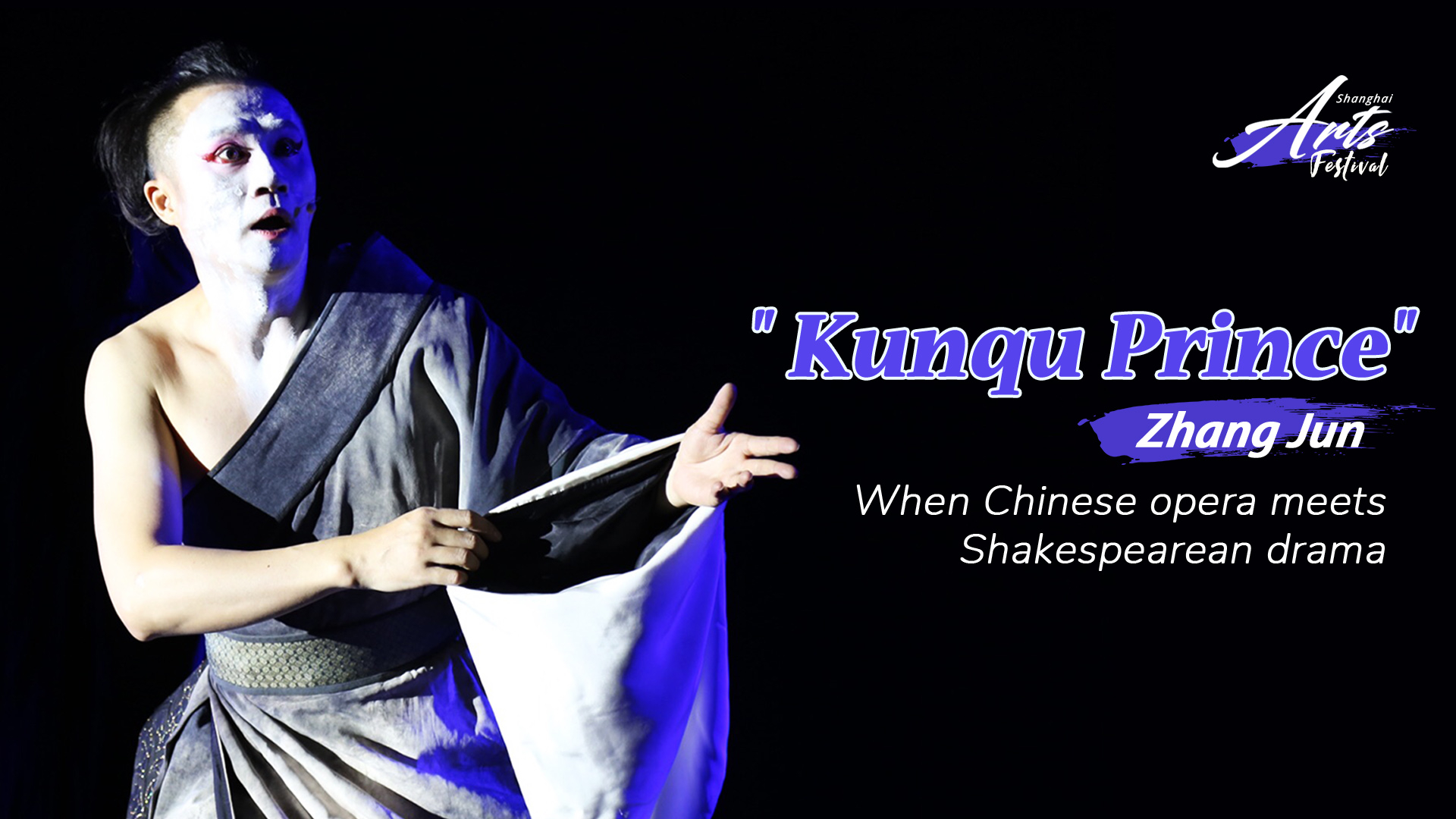
What happens when traditional Chinese opera meets Shakespeare's drama? Chinese top-class Kunqu opera singer Zhang Jun gives the audience a possible answer through his new play, "Julius Caesar."
The play, based on Shakespeare's classic tragedy with the same name written 420 years ago, depicts the murder of the all-powerful monarch in 44 B.C. It's performed on the stage by two actors only – Zhang Jun and Peking Opera (Jingju) pioneer Wu Hsing-kuo, who has been adapting world literature classics to traditional Peking Opera for decades.
Projected images and sculptures are also used to show the story, which has very intense conflict. Both performers offered the audience a 10-minute rush sample on Saturday, during the ongoing 21st China Shanghai International Arts Festival. The world tour of the complete show will start in Hong Kong on March 2020.
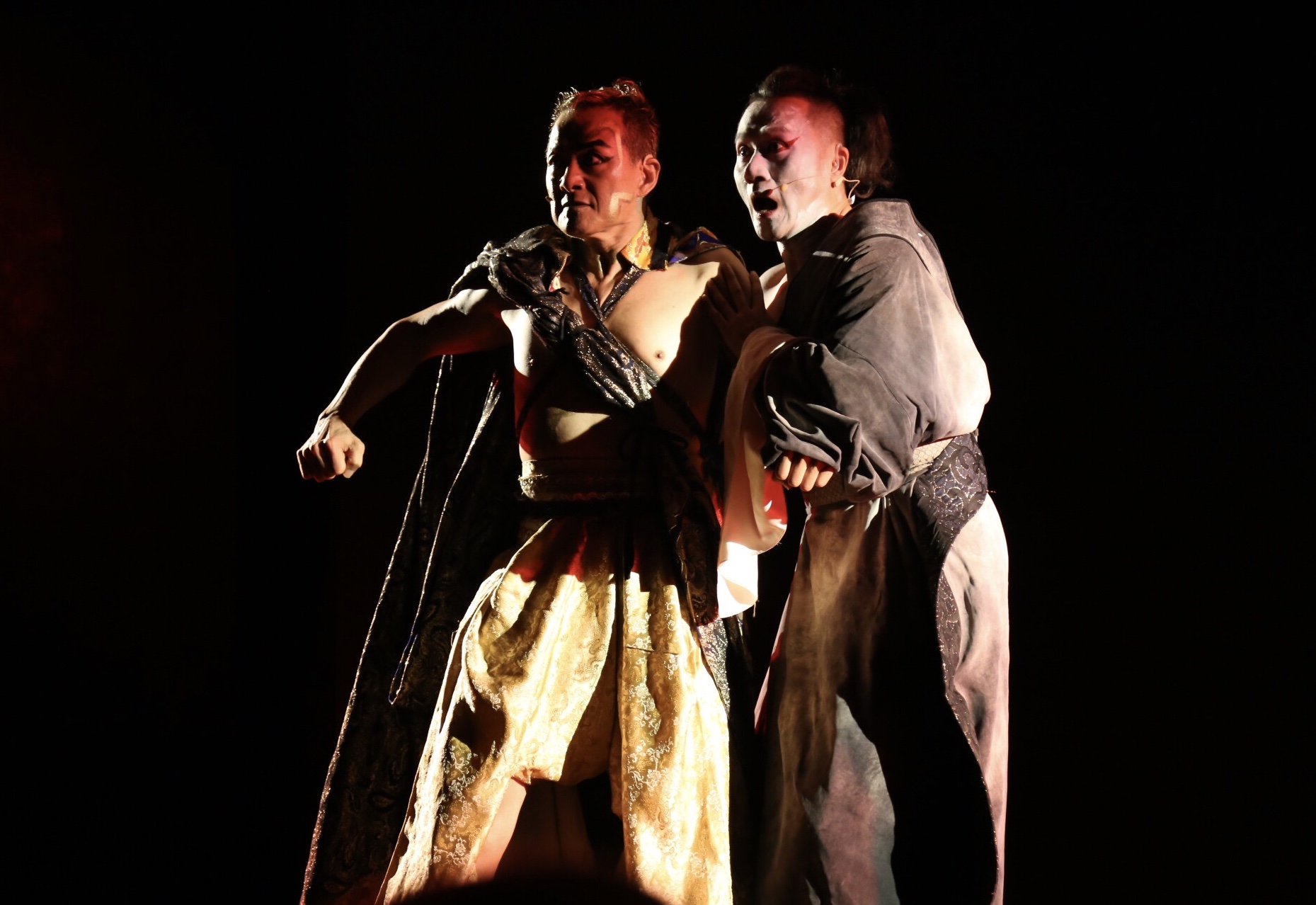
A still from "Julius Caesar" played by Wu Hsing-kuo (L) and Zhang Jun in Shanghai, October 19, 2019. /CGTN Photo
A still from "Julius Caesar" played by Wu Hsing-kuo (L) and Zhang Jun in Shanghai, October 19, 2019. /CGTN Photo
Being a veteran Kunqu opera singer on stage for 33 years, Zhang noted that the "Julius Caesar" is still a challenge for him since the whole team is doing something quite new.
Both Peking Opera and Kunqu Opera are highly sophisticated forms of art combined with singing, reciting, acting, and acrobatics. The body movement component wasn't problematic thanks to decades of tough physical training. The singing part, however, required a large amount of time to practice.
"The beautiful composition is neither Peking opera, nor Kunqu opera. Instead, Xu fused our singing styles with Western opera and made something new for us," Zhang told CGTN, referring to the famous composer Xu Shuya, who made this piece.
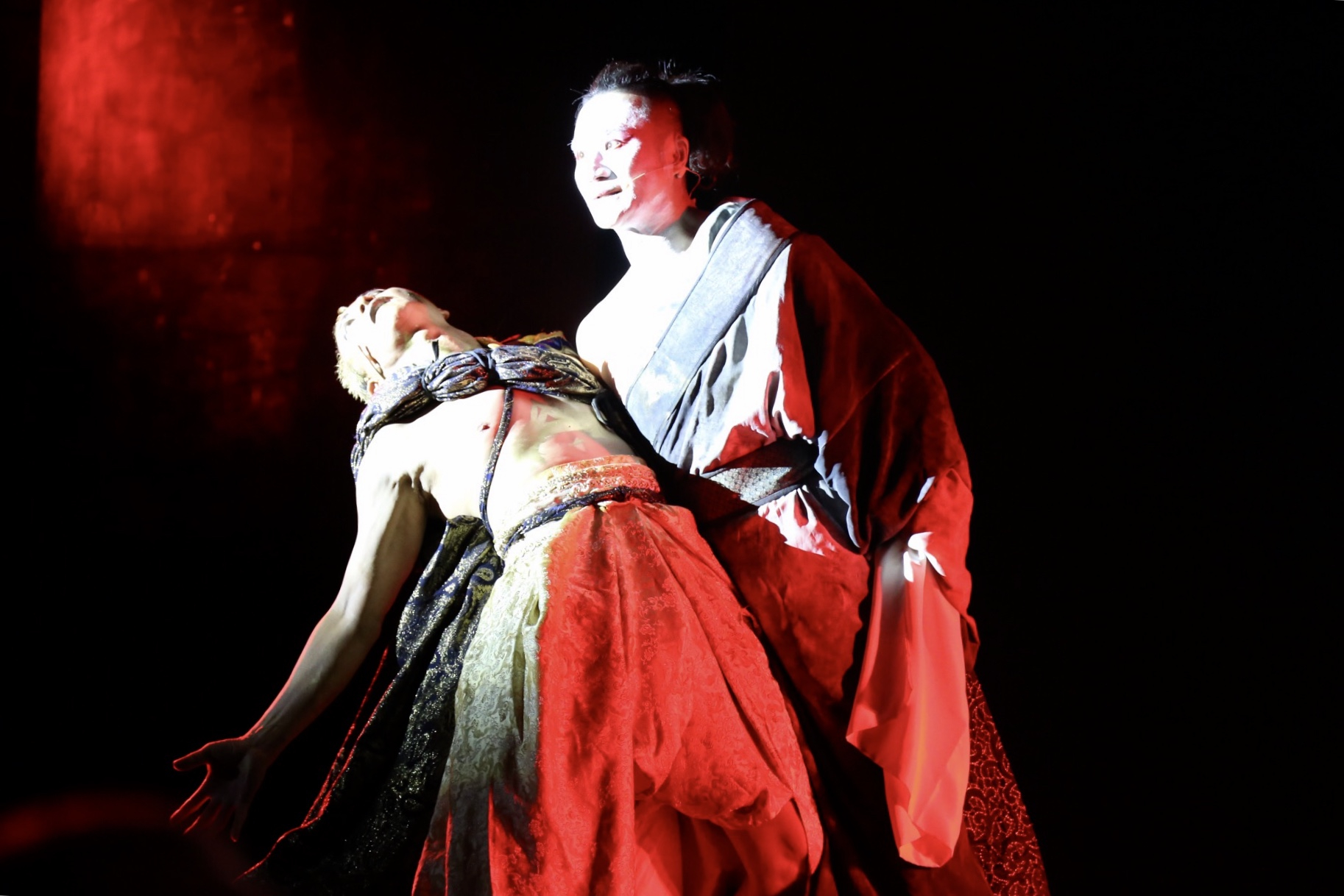
Another still from "Julius Caesar". /CGTN Photo
Another still from "Julius Caesar". /CGTN Photo
Zhang further explained that they have nine musical instruments for the play, mostly are Western, including flute and clarinet.
"It's very difficult to mix all these elements in one play. What we've made is not merely Chinese opera or Western opera, but a new attempt in art," added Zhang, who is considered the "Prince of Kunqu Opera."
A modern, strong-minded artist
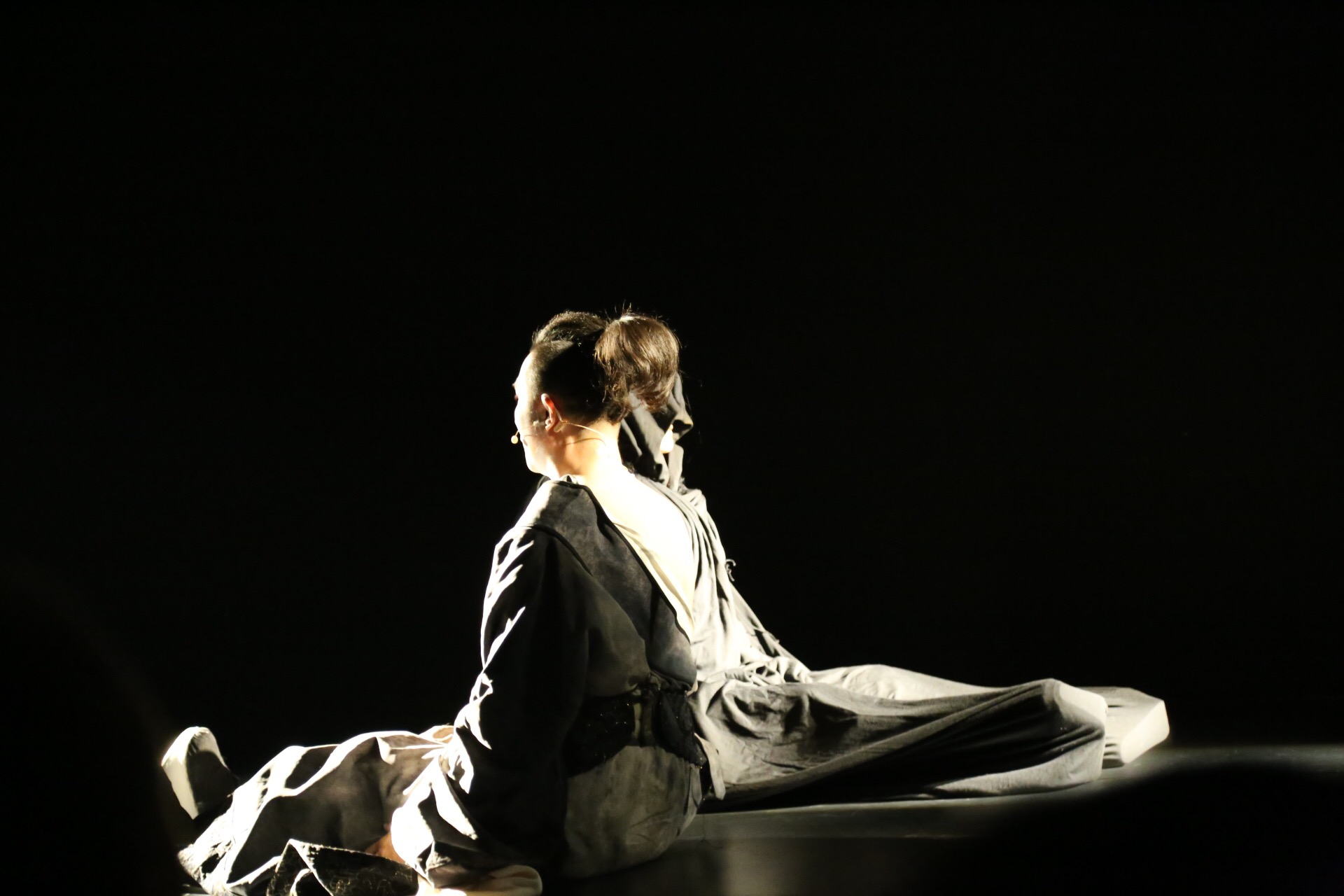
Zhang Jun on stage in "Julius Caesar". /CGTN Photo
Zhang Jun on stage in "Julius Caesar". /CGTN Photo
The 45-year-old artist has been challenging the boundaries of how Kunqu can be presented for decades with avant-garde ideas. He is perhaps the only Kunqu singer who can rap and sing opera at the same time.
He resigned from his job as deputy director of the Shanghai Kunqu Opera Troupe and founded the Zhang Jun Kunqu Art Center in 2009. Since then, Zhang and his team have created several box-office sensations in and out of China, including "Blossoms On A Spring Moonlit Night", "Peony Pavilion" and "I, Hamlet."
Many of his groundbreaking performances fuse new age, jazz, electronic, and rock'n'roll with traditional Kunqu Opera. His concert "Kunplug" held in 2018, in Shanghai, attracted over 10,000 people. This was almost a miracle in the Kunqu opera circle.
Innovation, however, isn't always echoed by applause. Some audiences and critics complain Zhang adds too much pop culture into this 600-year-old opera. During his interview with CGTN, Zhang said that he has never been daunted by controversy or criticism.
"I think probably all artists will stick to their colors in their artistic creation. We put 100 percent of our passion in our work and let the audience feel the emotions we try to convey.”
'To give the past a better future'
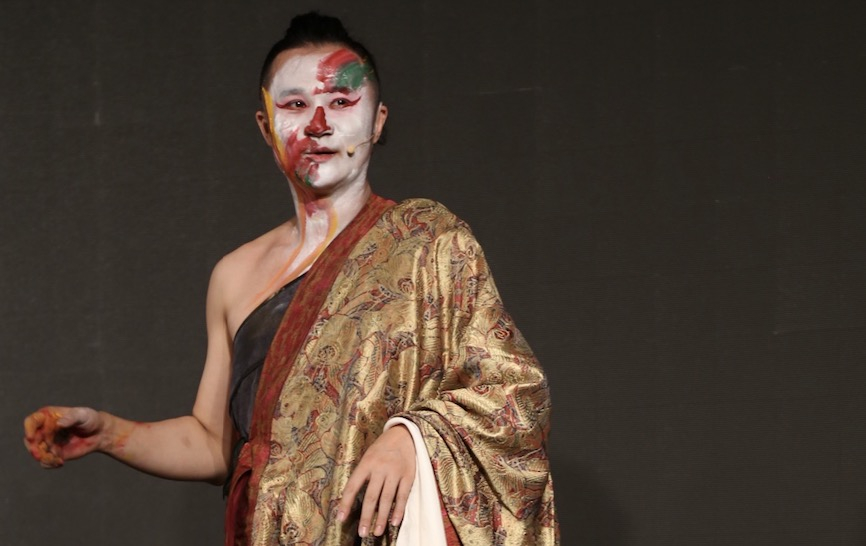
Zhang Jun thanks the audience on stage his performance, Shanghai, October 19, 2019. /CGTN Photo
Zhang Jun thanks the audience on stage his performance, Shanghai, October 19, 2019. /CGTN Photo
"To give the past a better future" was the promise Zhang made when receiving the UNESCO Artist of Peace award in May 2011.
Since 1998, Zhang and his colleagues have been actively popularizing the art of Kunqu among college students. His objective through all these years has been to perfectly combine tradition and modern elements in Kunqu opera.
"We will leave the stage sooner or later. We hope we can leave some valuable performances that young people can learn and discuss in the future. That"s the most fulfilling thing for me," Zhang said.
Reporting & photography: Deng Junfang
Video shooting & editing: Liang Si
Cover image design: Du Chenxin
Field producer: Deng Junfang
Producer: Si Nan
Supervisor: Zhang Shilei